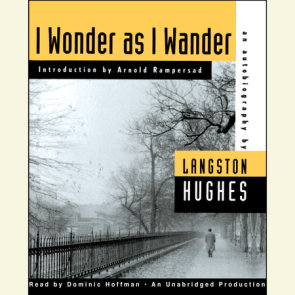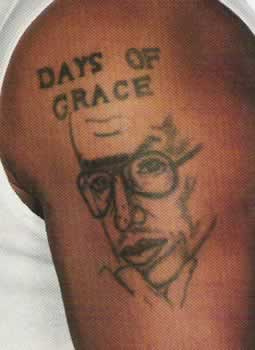Arthur Ashe Days Of Grace
Tennis Hits the Books
Arthur Ashe Days Of Grace Pdf
After my recent reading of John McPhee’s Levels of the Game, I came to the realization that I needed to brush up on my knowledge of the tennis career of Arthur Ashe. His memoir Days of Grace seemed to be an obvious place to start. Additionally, since February is Black History month, the timing is perfect. As a bonus, a hardcover edition of Days of Grace was already languishing on a shelf in my family room.
Arranged loosely by topic, the eleven chapters of Days of Gracefocus not on the deterioration of Ashe’s body but rather on the evolution of his spirit. While typically reserved in tone, the book. He also dedicated time in his last few months to writing “Days of Grace,” his memoir that he finished only days before his death. On February 6, 1993 Arthur Ashe died of AIDS-related pneumonia in New York at the age of 49. Days of Grace may refer to: Days of Grace (album), compilation album by C.W. Days of Grace, album by Greg Long. Days of Grace (film), 2011 Mexican film. Days of Grace (book), an autobiography by tennis player Arthur Ashe (1943-1993) This disambiguation page lists articles associated with the title Days of Grace.

The books that live in my family room are in that location as a part of the decoration. I like books as accent pieces. They create a warm and cultured feeling. At the same time, the titles on display in my family room have been carefully curated because they are a semi-public reflection of myself and our family. The thing is… until last week, I hadn’t yet gotten around to actually reading Days of Grace. I’m trying to not think too hard about what that might actually mean.
I was midway into my reading of Days of Grace when I had the realization that it is not a book about tennis. In actuality it is a book about a person who happens to be a tennis player. When Days of Grace was written, Arthur Ashe had been diagnosed with AIDS and was most certainly aware that he was likely to die in the near future. In fact, he passed away before the book was published.
Days of Grace details Ashe’s tenure as the US Davis Cup Captain and dishes up scintillating detail about what it was like to attempt to wrangle the strong personality that was John McEnroe. Jimmy Connors rarely played for the US in the Davis Cup, but the two occasions when he did was under Ashe’s captaincy. From a strictly tennis perspective, the book is valuable for the Davis Cup insights alone.
Ashe was widely thought of as sensitive and reserved. Days of Grace reinforces that persona while pulling back the curtain on his own self reflections. He succinctly distilled his personal outlook early in the book. “I learned not so much to turn the other cheek, as to present, wherever possible, no cheek at all.”
Days of Grace is a powerful account of what it was like to be diagnosed with AIDS when the disease first emerged and effective treatments did not exist. There was tremendous social stigma of an AIDS diagnosis because the disease was primarily ravaging homosexual males. The public innuendo swirling around any victim was that “immoral” behavior had probably led to the infection. Ashe strongly denied being a closeted homosexual while at the same time outlining the tragedy that the victims of the disease were compelled to make such declarations.

Currently another infectious disease is spreading and impacting lives on a global basis. This makes Ashe’s observations about the politics of discovering and developing treatments seem both current and relevant. For example, the leading expert on AIDS in the United States at the time was one Dr. Anthony Faucci. I’ve heard of him. Faucci’s thought and insights on treatment of AIDS spans a few pages in Days of Grace.

Ultimately Arthur Ashe’s memoir is a thoughtful and insightful account of how society deals with infectious disease. The themes stand up effectively to the test of time and resonate within the context of current events. I have no better summary than Ashe’s own observation made toward the end of the book.
Too many people seem determined to forget that although we are of different colors and beliefs, we are all members of the same human race, united by much more than the factors and forces that separate us.
Arthur Ashe, Days of GraceIt is the kind of book that stays with you forever. My copy of Days of Grace has been returned to its rightful position on the family room bookshelf. It is the embodiment of what we all should aspire to be.

Fiend At Court participates in the amazon associates program and receives a paid commission on any purchases made via the links in this article. Additional details on the disposition of proceeds from this source are available in the “About Fiend at Court” page.
Arthur Ashe Daughter
We live in a day and age when the President of the United States tells us what kind of underwear he sports and, through a string of unfortunate circumstances, we find out about even his genital abnormalities. He famously attests to feeling our pain, tears up at the drop of a hat and bites his own lip almost as often as those of the women he accosts. No emotion, real or faked, is allowed to go unmentioned. No facet of his life is too private to remain hidden. He seems to be incapable of embarassment, devoid of shame, almost proud of personal scandal. Everything--good, bad & indifferent--is on display and no thought is given to how the public and his peers perceive him. His life is about personal gratification and little else.
How different this is from the example of George Washington. As Gordon Wood has written in an excellent essay in the Virginia Historical Review, to Washington reputation was of paramount importance. Nothing mattered more to him than how he was perceived by his fellow men. This obsession fostered in him a moral rectitude that has served to make him seem somehow less than human, as if he had become a statue before he was even dead. But it also made him a world historical figure, a man of unquestioned greatness. And if our modern sensibilities find something vainglorious in his vanity and we feel a certain lack of connection with him because of his seeming perfection, at least he has maintained an aura of mystery and a sterling reputation for two centuries and counting.
What's the point of all this? Just that Arthur Ashe seems to me to have been the George Washington of modern sport, an accomplishment that was all the more notable at a time when his fellow atheletes were increasingly emulating Bill Clinton. The title of this memoir is especially appropriate because throughout his entire career Ashe seemed to be imbued with a quality of personal grace. He was always a class act, always reserved, always professional, politically active without being shrill--he simply seemed to be better balanced and more grounded than most of those he competed against. In fact, the rap on him was that he was too self-contained and that he needed to be more outer directed in order to win tennis matches (see Orrin's review of John McPhee's Levels of the Game). Whether being more emotionally labile is truly of benefit on the court seems open to debate, but at any rate, Ashe remained a somewhat enigmatic, enormously respected figure.
It therefore came as a genuine shock when he announced to the world that he had contracted AIDs. Suddenly this most private of public men was inextricablty tied to a disease whose associations were overwhelming behavioral. What had happened to bring Ashe into the glare of the sensational public spotlight and, in particular, how was it possible that he, of all people, came to be identified with a disease that carried with it such negative moral connotations? This is the point where Ashe begins his moving memoir.
Arthur Ashe Days Of Grace Book
In answering these questions, he is forced to reveal himself in ways that he never had during his career. The effect is by turns affecting and disquieting. I understand why he felt the need to share so much with the public, if for no other reason than to protect his carefully carved reputation, but by the end of the book, when he closes with a long admonitory letter that he wrote to his daughter, I just felt that he had gone too far. Ultimately, he has nearly done a disservice to himself by exposing so much. His life story and his description of the way in which family, sport and God sustained and nourished him throughout that exemplary life is eminently worthwhile. But I finished the book feeling almost like a voyuer and wishing that he'd held back a little more. I preferred him when he was more Washington than Clinton.
(Reviewed:)
Grade: (B)
